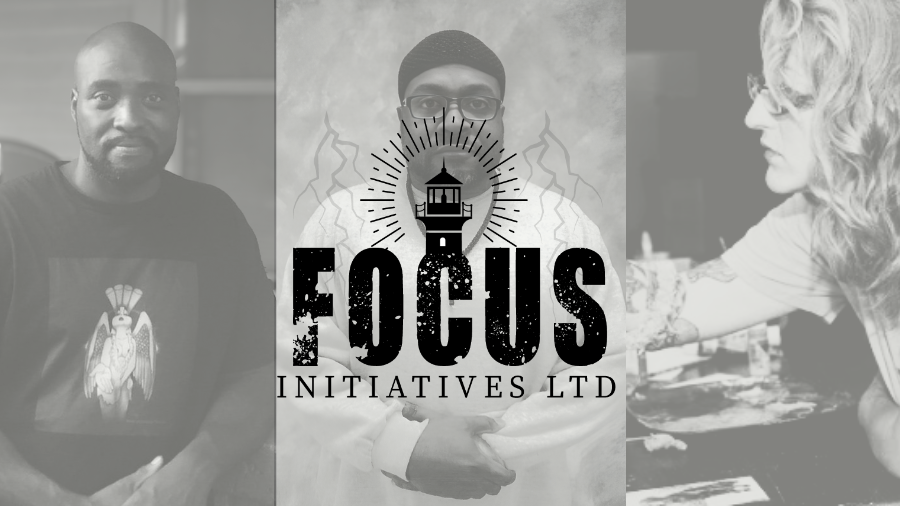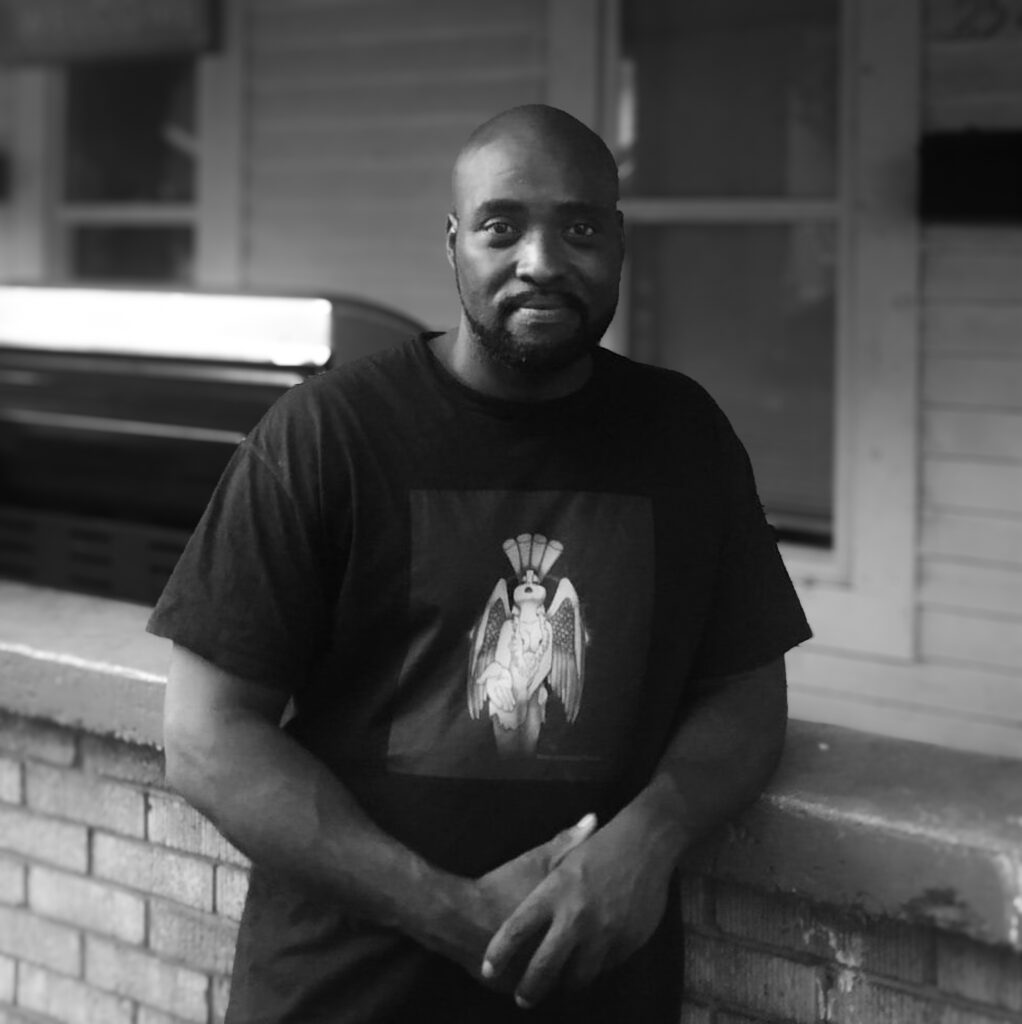
Jauston Huerta, Indianapolis Director & House Manager
Jauston “Jok” grew up in Baton Rouge, LA, until his adolescent years, and then, as a teenager, he was thrown between the slums of Tijuana, Mexico, and Gary, IN. Difficult conditions in a stressful environment made it easier to fall into the common traps of an urban community. Jok made his living as a drug dealer for over 25 years.
After approximately fourteen years of incarceration off and on in facilities across the country, Jok has emerged from this dark period of his life with a new sense of purpose and direction. He has completely immersed himself in FOCUS and has supported the organization with housing, resources, information, and encouragement. Jok was released from incarceration two years ago and is thriving like never before. In addition to working with FOCUS, he is a warehouse team leader and is focusing on his passion, a cartoon project on YouTube called The Real Cindy Lou.
Inside Leadership
Khalfani Malik Khaldun and Angaza Iman Bahar are currently incarcerated in Indiana. Anastazia Schmid was recently released on parole. Their leadership and foresight created FOCUS Initiatives.
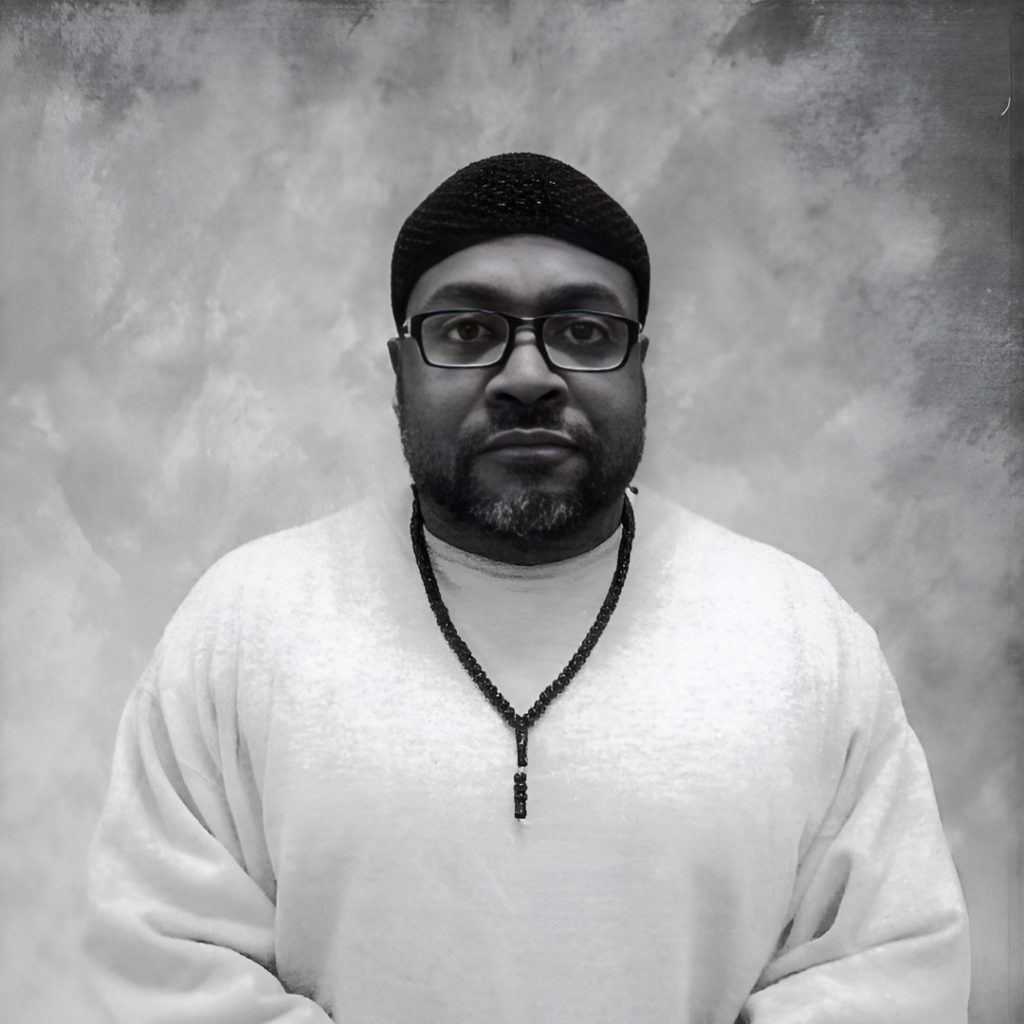
Khalfani Malik Khaldun
“In 1987, I was a teenager. After being arrested, I had no idea that my journey in the Indiana court system on my first offense would end up taking me away from my family, friends, and children for 25 years, serving 12 ½. For years, I would hear conversations about the system being broken. For a long time, I agreed. Now, having been on the inside for 32 years, forced to endure an additional trumped-up murder charge inside these walls, given 60 new years, fighting for my vindication and my long-awaited freedom – I disagree. The system isn’t broken. It is operating as it was designed and created.
My experience with this system is clear. The separation and disconnection from society are like going through a social death. We are slowly forgotten and abandoned. People I used to call, my calls are accepted here and there. My letters and mail were 10-15 letters daily; now, I’m lucky to get one weekly. For years, I received visits every 14 days for like ten years straight. Now I’m lucky to get a visit. This is the social death we all will experience.
Prisoners like myself, who have spent practically our whole lives in prison, have no resources, and most of our family members who would be there for us have died. We will need a safety net like a Re-entry program that is stabilized enough to meet all of my/our needs. Prison life subjects us to a lot of mentally oppressive conditions. So, many prisoners like myself and others can benefit from counseling and therapy.
We need a re-entry program that trains and empowers us with jobs. I will need clothes, transportation, a phone, an apartment, etc. The Indiana Department of Corrections claims to have attempted to meet the needs of those of us in its custody. I can say that they have failed terribly. I want to be a part of any program that is committed to my successful transition back into the world. I support it 100% if they want to help us reconnect with our families.
We realize that a lot of blame falls on us for re-offending and returning to prison for violating probation or parole or committing a new crime. We equally have to admit that the root cause of the consistently high return to prison lies in an ineffective Indiana Department of Corrections re-entry program that’s failing its prisoners. That program prepares us to fail. So, if I want to succeed and make it in society and not come back, I have to go beyond the State’s program and embrace the safety net/alternative available beyond these walls. The State of Indiana could benefit from a quality re-entry program that plays a hands-on approach to saving us from falling back into our old ways. So many of us have lost our close family members. We will need people to have our back when things get rough.” You can read Brother Khalfani’s writings and listen to his interviews at SFBayView.com or IDOCWatch.

Anastazia Schmid
Anastazia spent nearly 18 years behind bars for killing her abusive partner, Tony Heathcote. For three and a half years, Tony subjected Ana and her loved ones to pervasive physical, sexual, and emotional abuse. This abuse often took place in full view of others, including acquaintances, family, and law enforcement officers. In 2001, Ana was informed for the first time that Tony had sexually abused her 6-year-old daughter. She committed her crime two days later in a dissociative state. She was arrested and charged with seven counts, including murder.
While detained in county jail, Ana suffered physical abuse by police and was held in severely overcrowded cells. In these conditions, Ana’s mental state worsened. She was found incompetent to stand trial and was transferred to the Evansville State Hospital. There, Ana was prescribed increasingly stronger and more complex doses of psychotropic medications. Ana also experienced delusions and paranoia. “The nightmares were hellish. At times, I was convinced my partner was hiding somewhere in the jail stalking me, waiting for the opportune time to attack me again.” She would later learn that, when prescribed in those dosages and combinations, psychotropic medications can worsen symptoms of psychosis.
Despite these symptoms, Ana was re-evaluated and found competent to stand trial. During her ten months of pretrial detention, her mental health deteriorated further, culminating in an emergency return to the hospital just two weeks before trial. Ana would continue to experience delusions and paranoia throughout the 6-day proceeding. She would only understand what had occurred many years later, including the implications of her attorneys’ choice of the usually unsuccessful insanity defense and the extent to which the history surrounding her crime was suppressed. She would later learn that prosecutors successfully moved to exclude evidence of prior bad acts by her abusive partner and that her own attorney had moved to exclude evidence of her partner’s sexual abuse of her daughter. This was done at the request of Ana’s mother, who paid for her defense and wished to avoid this disclosure in court. Ana was found “guilty, but mentally ill” on all counts. She was sentenced to 55 years in the Department of Corrections, with a 25-year minimum, and five years on parole.
After struggling for years, Ana was able to get clean and understand the situation she was in. She became a jailhouse lawyer, helping other incarcerated women understand their legal situation and take legal action, and a yoga instructor and mentor to many incarcerated women. In February 2019, she won an appeal on her conviction in federal court and was released in September. Ana was in touch with people working on FOCUS while incarcerated, and now that she’s out, she is consulting with and advising the organization. Ana is also a member of the Abolition Journal collective and another Indianapolis-based organization working to establish re-entry support for formerly incarcerated people, Constructing Our Future. Now that she is out, her main focus is developing networks and infrastructure to support and protect women and girls impacted by the carceral system. You can read more about Ana’s case and story and her writing here: Justice For Anastazia Schmid, How Gynecology, Obstetrics and American Prisons Operate to Construct and Control Women, and TheAppeal.org.
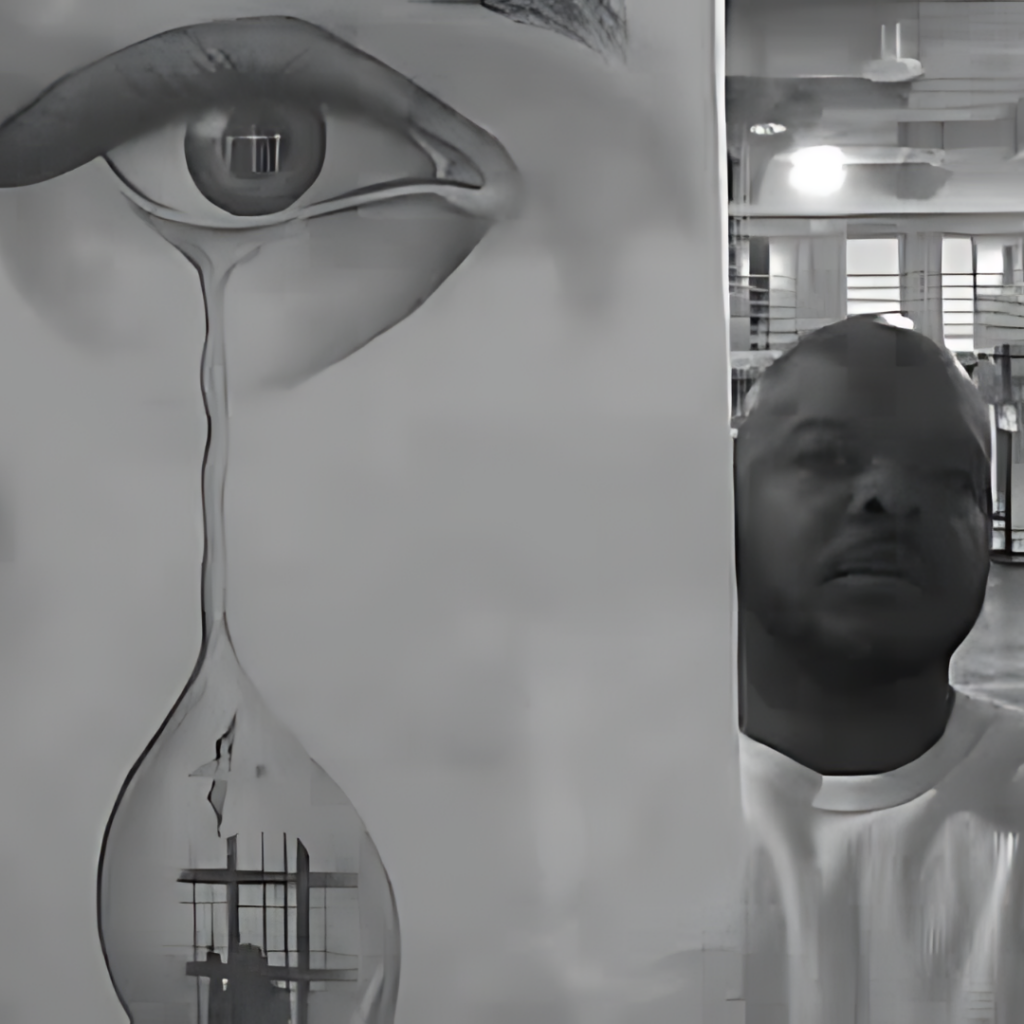
Angaza Iman Bahar
“I strongly believe that the re-entry project we are trying to create with FOCUS Initiatives is the best possible option for someone like me, who has spent so many years in prison and wants to return to my community to contribute to its uplifting. The fact that, unlike most other re-entry programs, this one requires all participants to be active in the community in a way that brings them and that community closer together is a key element to producing successful re-entry.
When I get out of prison after serving 25+ years, I will be returning to a society that I have little understanding of with nothing more than a set of state-issued clothing and a debit card with $75 on it. This is all the state is required to provide those like me. The re-entry project gives me the necessary safety net to ease my way back into life. In the process, it also gives me the opportunity to show my community that I stand with them and am willing to dedicate my time and energy to working to make our environment a better and safer place to live. [This is] such an opportunity that many of us need, and that is why this project is so important; it gives those society has written off and forgotten a second chance.” You can read Angaza’s writings and listen to his speeches at They Shall Never Break Me: Angaza Iman Bahar’s Story and Study Sessions.
Coordination
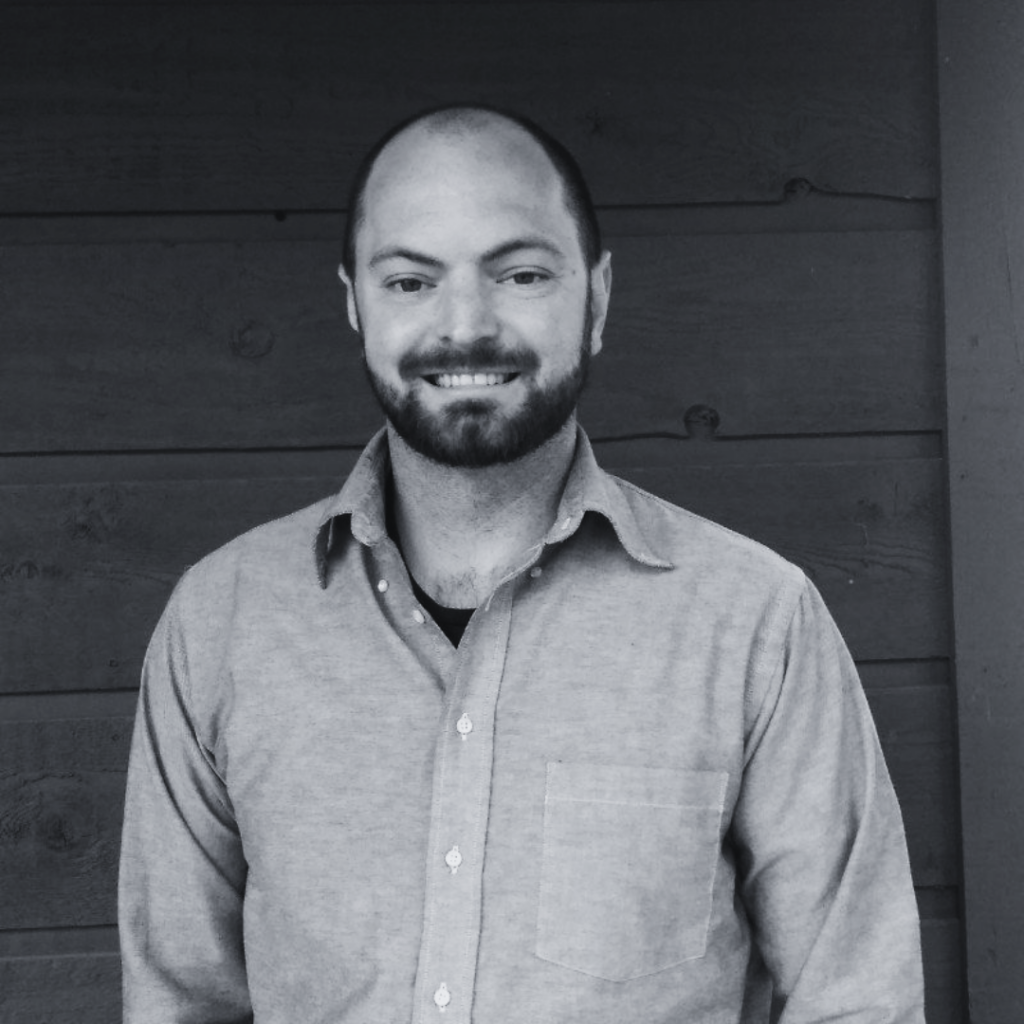
Nicholas Greven, Strategic Planning Director
As the volunteer Strategic Planning Director for FOCUS Initiatives, Nicholas coordinates fundraising, outreach, and communication. This position aims to develop the organization’s resources and capacity to be self-sustaining and directed by formerly incarcerated people and people with incarcerated loved ones.
Nicholas is a long-time community organizer and a founder of FOCUS Initiatives. He has advocated for prisoners’ rights and decarceration for nearly a decade.


